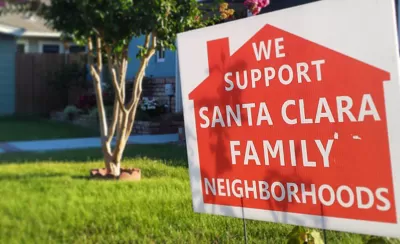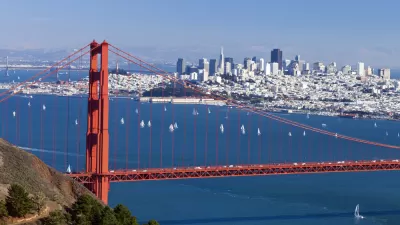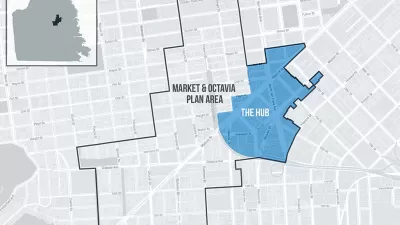Historically liberal cities belie their supposed concern for human welfare by rejecting new development. Meanwhile, more conservative cities have seized the moment to become more progressive, innovative, and inclusive.

"The "radical left" has been protesting capitalist developers for years. In part because of the influence of self-described Democratic Socialist Dean Preston, the current Board of Supervisors has waded deeply into radical territory and into anti-developer activism. Of course, by many accounts, the provision of housing aligns squarely with progressive values: housing is a human right, and governments ought to protect, and even further, that right. A diversity housing typologies and price points, especially in dense, diverse cities, is the epitome of inclusiveness."
"San Francisco doesn't seem to get this. But some other cities do -- and not necessarily the ones you'd expect."
"I can't help thinking that the San Joses and San Diegos of the world want to get in on the fun. For pretty much as long as California has existed, they have been considered less urbane, less fun, and less attractive than rivals like San Francisco and Los Angeles. They missed out on the dense urbanism that developed before World War II and then contentedly took advantage of suburbanization in the latter half of the 20th century. Now that urbanism is back -- because of the creative class, antipathy towards long commutes, revolts against suburban living, or what-have-you -- they're grown tired of their own dullness (one of the more outlandish examples: San Jose's proposal for a weird monumental tower). And, importantly, they have relatively more land with which to try new things and seem unafraid of welcoming new residents."
FULL STORY: Let's Retire Our Ideological Labels For Cities

Planetizen Federal Action Tracker
A weekly monitor of how Trump’s orders and actions are impacting planners and planning in America.

San Francisco's School District Spent $105M To Build Affordable Housing for Teachers — And That's Just the Beginning
SFUSD joins a growing list of school districts using their land holdings to address housing affordability challenges faced by their own employees.

The Tiny, Adorable $7,000 Car Turning Japan Onto EVs
The single seat Mibot charges from a regular plug as quickly as an iPad, and is about half the price of an average EV.

Seattle's Plan for Adopting Driverless Cars
Equity, safety, accessibility and affordability are front of mind as the city prepares for robotaxis and other autonomous vehicles.

As Trump Phases Out FEMA, Is It Time to Flee the Floodplains?
With less federal funding available for disaster relief efforts, the need to relocate at-risk communities is more urgent than ever.

With Protected Lanes, 460% More People Commute by Bike
For those needing more ammo, more data proving what we already knew is here.
Urban Design for Planners 1: Software Tools
This six-course series explores essential urban design concepts using open source software and equips planners with the tools they need to participate fully in the urban design process.
Planning for Universal Design
Learn the tools for implementing Universal Design in planning regulations.
Smith Gee Studio
City of Charlotte
City of Camden Redevelopment Agency
City of Astoria
Transportation Research & Education Center (TREC) at Portland State University
US High Speed Rail Association
City of Camden Redevelopment Agency
Municipality of Princeton (NJ)





























